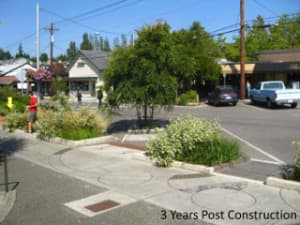Federal Highway Administration: Context Sensitive Solutions National Dialog 2
How Cadmus is helping FHWA promote an ongoing exchange of ideas and drive momentum for wider implementation of context sensitive solutions in the transportation industry
The Federal Highway Administration (FHWA) is an agency within the U.S. Department of Transportation (DOT) that supports state and local governments in the design, construction, and maintenance of the nation’s highway system and highways on various federal and tribal lands. The Office of Planning, Environment, and Realty (HEP) serves as FHWA’s advocate and national leader for:
- Environmental protection and enhancement
- Comprehensive intermodal and multimodal transportation planning
- The fair and prudent acquisition and management of real property

Context sensitive solutions (CSS) is a collaborative, interdisciplinary approach that involves all stakeholders in providing a transportation facility that fits its social and environmental setting. CSS facilitates preserving and enhancing scenic, aesthetic, historical, community, and environmental resources while improving or maintaining safety, mobility, and infrastructure conditions.
Challenge
FHWA sought a mechanism to highlight how CSS can be used to improve all phases of the transportation decision-making process, from planning to design, construction, maintenance, performance evaluation, and into the next planning cycle. FHWA also sought to articulate how CSS supports FHWA’s priority initiatives, including livability, planning and environmental linkages, and the Every Day Counts initiative.
Solution
To further FHWA’s goals, Cadmus is leading the team that supports the agency’s renewed CSS National Dialog 2. The primary focus of this project is a series of regional workshops around the United States, each with a set of case study presentations and discussion panels drawn from the host regions.
CSS National Dialog 2 workshops highlight current state DOT and other transportation agency CSS activities that are closely related to the emerging federal emphasis on livability and sustainability, particularly efforts for institutional and organizational change that will lead to broader adoption and application of CSS principles. Cadmus is convening 10 regional workshops in which the best practices of applying CSS in transportation projects, plans, and programs are presented and used to initiate discussion and interaction among workshop participants. The workshops are delivered to dozens of on-site participants, and hundreds of additional remote participants join via webcast. Participants typically include transportation planners, engineers, landscape architects, environmental specialists, bicycle and pedestrian coordinators, and sustainability managers. Participants represent state departments of transportation, Metropolitan Planning Organizations (MPOs), consulting firms, and staff of local government agencies.
Results
Tangible results that are being achieved through Cadmus’s support of the CSS National Dialog 2 include:
- Introducing CSS principles and practices to a wide array of partner organizations
- Identifying CSS best practices and presenting those to transportation professionals across the nation
- Strengthening and broadening practitioners’ interest in CSS
- Discovering new opportunities for partnerships by facilitating networking among workshop participants
- Bringing new perspectives to planning, designing, building, and maintaining transportation facilities
- Fostering a community to promote the dissemination of CSS best practice examples
Attendee feedback on the CSS National Dialog 2 workshop:
“Speakers and presentation, panel discussion, case studies, best practices – all top notch. Well done by all. Very well organized – perhaps more so than any workshop I’ve attended that involved this varied level of speakers and discussion formats.”
“Excellent workshop.”
“Very engaging presenters. I could not have stayed online without them.”